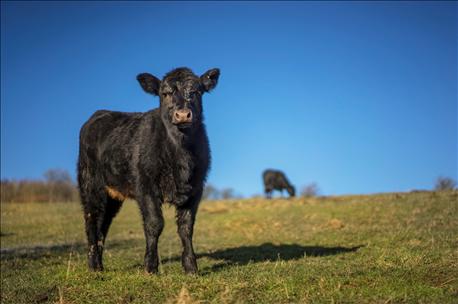
Murphy Cummings claimed to be old the first time he hired me to vaccinate some heifers for Bangs in the late 70’s. He had been in the cattle business for several decades. He had paid off a farm and raised a family. He owned land and cattle and not much anything else. He purchased his hay and supplement. Both were minimal.
Murphy was opinionated, strongly opinionated. He was not blind as to breeds of cattle even though his were Herefords. He talked function and economics, not breeds.

Market is slumping, but there are some keys to success - over the long haul. (Photo: robbinsbox/ThinkStock
He said that the first thing most people did when they came up with a piece of land was to buy cattle. They did not have grass, water, shade, or fence but they were in the cattle business and doomed to failure. There was a lot more truth than poetry in what he said.
Recently a lot of the country has received sizeable frequent moisture and greened up. Cattle herds are growing and have been increasing at a rate that exceeds historical records. Lots of people have bought cattle. Many heifers have been retained. A bunch has again been written and published about replacement heifers. I know this for a fact since I have written part of it. The market has headed south.
The attributes of trading heifers vs keeping “quality” heifers have been expressed. Principles that are set in concrete are often neglected when herd expansion begins to gain momentum. Remember that profitable black ink has already left a bunch of sizable operations. Many decisions that I continue to see us cattlemen make tend to prove that we are in the “hobby” business. There is nothing wrong with hobbies as long as they don’t bury us. I realize that money is cheap and interest rates are low. But everything has to be paid for at some point in time. Using savings or borrowed money to loose in the business does not compute.
I strive to replace feelings with facts. Our feelings are God given and important but must be tempered with facts. Here’s some of their dos and don’ts. Low cost producers:
• Never run out of grass and water
• Always save money
• Don’t buy cattle that don’t have lots of improvement in them
• Don’t buy at the top of the market
• Don’t buy to quickly resale
• Don’t get caught up in the excitement of the moment. They know it will fail
• Very seldom have more cattle than their resources can handle
• Never buy much of anything
Fancy stuff and toys, including fancy cattle are made to sell when the market is headed north. They’re not made to buy.
Ups are always followed by downs. Neither is totally predictable as to timing. How far will your grass grow without another good rain? Good planning costs a lot less than spending does. Grass, water, shade, and fences come first. Then comes the right cattle. We have got to get our priorities in order. I’ll bet we won’t save the world before we save ourselves.
About the Author(s)
You May Also Like






